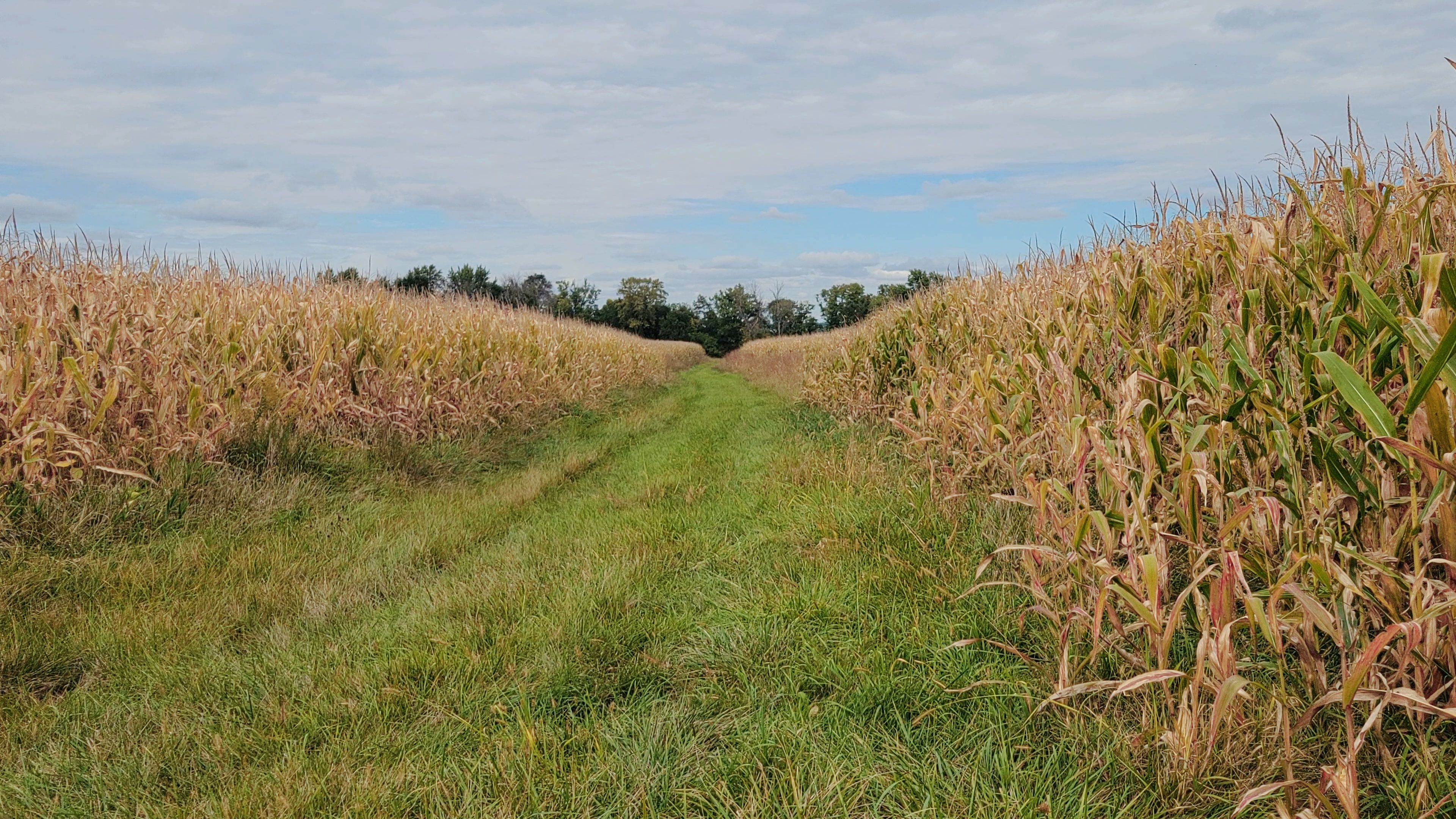Johnson County farmers demonstrate commitment to conservation
Author
Published
10/8/2024
Traveling the back roads of Johnson County, you'd be hard-pressed to find a family farm that doesn't implement conservation practices.
It’s because of these steadfast efforts that among Iowa’s 99 counties, Johnson County farmers rank:
- Third in percentage of farmland planted to cover crops.
- Fourth in acres of contour grass strips.
- Tenth in acres of trees through USDA’s Conservation Reserve Program (CRP).
- Thirteenth in acres of wildlife habitat also through CRP.
Johnson County farmer Jeret Jiras plants cover crops on his family farm. He sees firsthand the benefits they provide in holding soil and nutrients on the land. They are a great feed source for his cattle, too.
You'll notice cover crops growing after harvest and in early spring prior to planting season. They blanket the land in greenery and provide living roots in the soil during winter months.
Additionally, Jeret uses sediment basins, sometimes referred to as “dry ponds,” in his fields. These structures act like reverse colanders, allowing sediment to sift to the pond floor while clean water is slowly drained back out through the land.
A short drive from Jeret, Sarah Neary’s family farm also puts an emphasis on environmental stewardship.
They practice no-till, which keeps soil on the farm and out of nearby streams. You can spot this practice by the corn stalks left standing at attention in the field after harvest.
As cattle farmers, both Jeret and Sarah see the benefits of rotational grazing. By moving their cattle through different “paddocks”—or fenced-off sections of pasture—grass can maintain a living root system, locking in carbon and improving soil health.
Sarah’s and Jeret’s farms feature lush, grassed waterways that snake through their crop fields. These patches of grass prevent gullies and washouts by guiding water through the landscape.

Buffer strips along streams that run through their land naturally filter nutrients before reaching any water source. Trees along these streams also help stabilize banks and promote habitat for wildlife.
Jeret and Sarah are committed to creating a positive impact for Johnson County residents by passing down the land in better condition than they found it.
“Johnson County is home for our family,” says Sarah. “We’re working to protect our soil, water and wildlife, and we’re teaching our kids that conservation mindset as well.”
Jeret, who farms with his two young sons and father, agrees. “Conservation is important to us because it protects natural resources throughout the community,” he says. “For this generation and the next.”
Learn more about author Caitlyn Lamm here.
Want more news on this topic? Farm Bureau members may subscribe for a free email news service, featuring the farm and rural topics that interest them most!